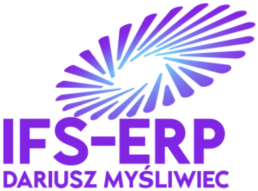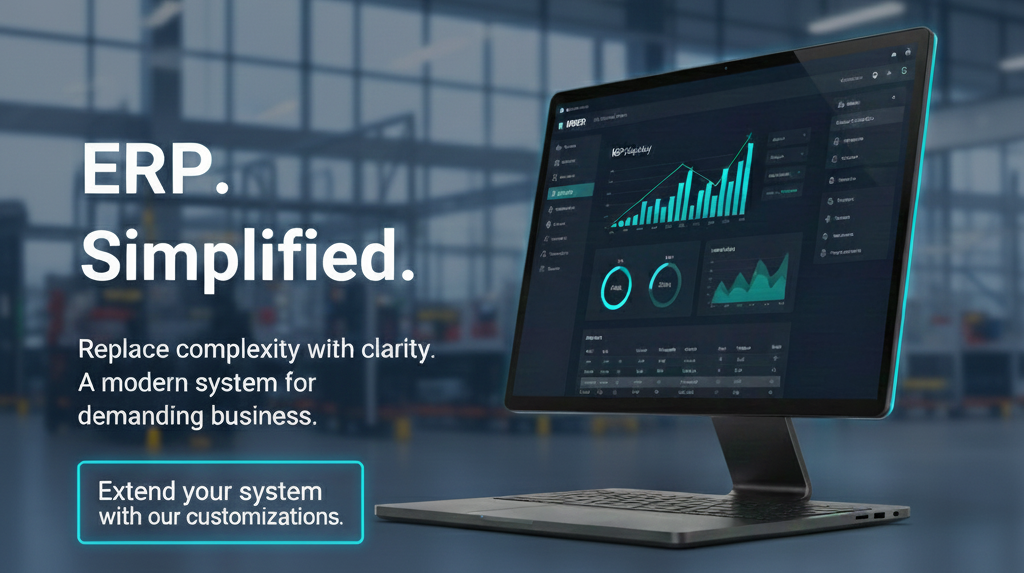The Enterprise Book of Rules in IFS Cloud
A Strategic Framework for Data Mesh Governance and Scalable ERP Implementation.
TL;DR (Too Long; Didn't Read)
- What: A master "constitution" (Book of Rules) for your ERP, defining how business logic, data, and processes are governed.
- How: Developed via the 5-phase IFS Methodology (Initiate to Go-Live) using the IFS Scope Tool.
- The Innovation: Merging ERP architecture with Data Mesh, shifting data ownership from central IT to business domains (Finance, SCM, HR).
- Outcome: Eliminates "Data Silos," ensures compliance, and allows the ERP to scale without losing control.
What Problem Does This Article Solve?
Many ERP implementations fail or become "zombie systems" because they lack a clear governance framework. Organizations often struggle with:
- Process Fragmentation: Different departments using the system in conflicting ways.
- Data Ownership Ambiguity: "Who is responsible for the accuracy of this supplier record?"
- Scalability Issues: Global rollouts crashing due to local configurations overriding global standards.
I. The Strategic Foundation: Overview of EBoR
Creating the Enterprise Book of Rules (EBoR) during an IFS Cloud implementation is not merely a documentation exercise; it is a foundational step that integrates company strategy, operational principles, financial controls, and governance within the technical ERP solution. The EBoR acts as the "Soul" of the implementation, ensuring that every configuration, from the Chart of Accounts to the Lead Time Calculation in SCM, is driven by a documented business rule rather than a technical whim.
In the context of IFS Cloud 25R1/25R2, where the shift to "Evergreen" (continuous updates) is mandatory, the Book of Rules becomes even more critical. It dictates how the organization handles new features and updates without breaking the core business logic. It leverages detailed templates and structured workshops to set prerequisites and standards tailored to the specific complexities of the customer’s business environment.
Key EBoR Components
- Global vs. Local Configuration Rules
- Multi-Company and Multi-Currency Logic
- Intercompany Transaction Policies
- Authorization and Approval Hierarchies
Compliance & Security
- GDPR and Data Privacy Standards
- Audit Trail Requirements
- Segregation of Duties (SoD) Rules
- Tax and Legal Reporting Mandates
II. Precision Engineering: The Role of the IFS Scope Tool
Central to the modern IFS methodology is the IFS Scope Tool. This is not just a project management spreadsheet; it is a sophisticated repository that maps the functional modules of IFS Cloud directly to the customer’s business domains. The Scope Tool serves as the bridge between the high-level Enterprise Book of Rules and the actual technical build.
The Scope Tool functions as a "Single Source of Truth" by capturing:
| Category | Functionality in EBoR | Impact on Implementation |
|---|---|---|
| Business Processes | BPA (Business Process Automation) Mapping | Aligns standard IFS processes with domain needs. |
| CRIM Objects | Customization & Reports Governance | Strictly controls "Scope Creep" by requiring justification. |
| Data Mapping | Migration Logic | Ensures legacy data meets the new Book of Rules standards. |
By maintaining alignment with the evolving Book of Rules, the Scope Tool ensures that when a change is made in the "Confirm Prototype" phase, its ripple effects across data governance and integrated domains are immediately visible and managed.
III. Data Mesh Principles in IFS Cloud
A significant advancement in modern IFS Cloud implementations is the incorporation of Data Mesh principles. Traditionally, ERP data was treated as a monolith managed by a central IT team. This created bottlenecks and "Data Swamps" where the context of information was lost.
Data Mesh introduces a decentralized approach by assigning ownership of "Data Products" to individual business domains. In IFS Cloud, this means the Finance Domain owns the Customer Master data, while the Production Domain owns the Routing and BOM data.
The EBoR formalizes this by defining Federated Computational Governance. Within this model, a central governance committee sets overarching policies (e.g., "All dates must follow ISO 8601"), while domain stewards are responsible for data quality, compliance, and operational readiness within their specific modules.
The 4 Pillars of Data Mesh
- Domain Ownership: Business units own their data.
- Data as a Product: Data must be usable and clean.
- Self-Serve Infrastructure: IFS Cloud as a platform.
- Federated Governance: Global rules, local execution.
IV. The 5 Phases of Implementation
01
Initiate Project: The Governance Foundation
This phase is about setting the "Constitutional" framework. We move beyond simple project management and begin drafting the initial Enterprise Book of Rules using industry-specific templates and the findings from the sales cycle.
Key Activities:
- Domain Identification: Defining which business units (Finance, Supply Chain, Service Management) will act as data owners.
- Stakeholder Appointment: Assigning Domain Stewards and the Central Governance Committee members.
- Infrastructure Setup: Preparing the IFS Cloud environment to support the decentralized Data Mesh architecture.
02
Confirm Prototype: Validating the Rules
In this phase, theory meets reality. We refine the Book of Rules through a series of "Conference Room Pilots" (CRP). We develop prototype processes to validate how data flows across domains. For example, how a Sales Order (SCM Domain) triggers a Financial Posting (Finance Domain) and whether the governance rules established in Phase 1 hold true.
Workshops: Intense sessions where the IFS Scope Tool is used to align business requirements with standard IFS functionality, identifying any necessary CRIM (Customization, Report, Integration, Modification) objects.
03
Establish Solution: Engineering and Testing
The "Build" phase. The Enterprise Book of Rules is extended with detailed solution designs. This isn't just about configuration; it's about Data Productization. Domain stewards work on data migration routines, ensuring that data being pulled from legacy systems is "cleansed" to meet the new Book of Rules standards.
Testing Strategy: Integration testing ensures that the federated governance model works. We test not just "does the button work," but "does the data ownership remain intact during this transaction?"
04
Implement Solution: Operational Readiness
Preparing for the "Big Day." This phase focuses on the human element and technical finalization. The Book of Rules is finalized and used as the basis for End-User Training (EUT). We don't just teach users which buttons to click; we teach them the Rules of the system.
Readiness Checks: Final cutover plans, load testing of the OData APIs, and ensuring that domain stewards are fully trained to manage their data products once the system is live.
05
Go Live: Transition to Governed Operation
The system is live, but the methodology doesn't end. We transition to a state of centralized oversight and decentralized operation. The Enterprise Book of Rules becomes a living document, updated through a formal "Change Management" process whenever the business evolves or IFS releases a new update.
Continuous Improvement: Post-go-live audits ensure that domains are adhering to the rules and that the Data Mesh is functioning as intended.
Federated Governance: Control without Bottlenecks
Governance in this framework is deliberately federated. A common mistake in ERP projects is trying to control everything from the center, which leads to slow decision-making and business frustration. Conversely, no control leads to chaos.
The Central Governance Team
Focused on the "Macro" level. They define the global data standards, integration protocols, and the overall architecture of the IFS Cloud environment. They own the "Master" Book of Rules.
The Domain Stewards
Focused on the "Micro" level. They apply the global rules to their specific business context. If Finance needs a new sub-ledger, the Finance Domain Steward ensures it complies with the global Book of Rules before it is implemented.
Frequently Asked Questions
The Future of Governed ERP
The synergy between the Enterprise Book of Rules and Data Mesh principles, achieved through the disciplined IFS Implementation Methodology, results in more than just an ERP system. It creates a robust, scalable, and agile digital core.
By shifting to decentralized data ownership supported by a centralized governance model, enterprises can innovate and respond dynamically to changing business requirements without sacrificing compliance or operational excellence. In the era of Cloud ERP, the Book of Rules is not just a document—it is your competitive advantage.


